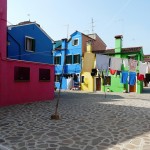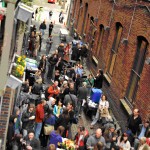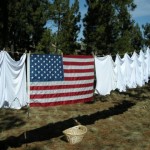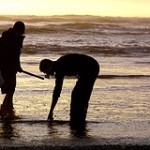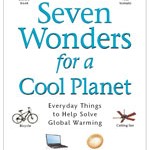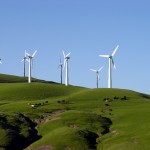Search Results
-
Looking Back, Moving Forward
Sightline had another big year in 2011. Here are a few of the things we did that made us proud: Coal Exports: Just as Washington State makes the healthy move to phase out its only coal-fired power plant, there are efforts afoot to connect Montana coal with Asian markets—via Northwest ports. From train traffic snarls to harmful coal dust to climate pollution—the negative impacts to our communities would be immense....Read more » -
Top 11 of 2011
What a year! And one of the best ever for Sightline’s blog. We’ve been through a complete redesign of the site and emails, introduced new issues, and penned over 380 posts that were read over 400,000 times. Thanks for sticking with us—it’s our readers (all 176,162 of you) who made 2011 such a success. It’s late December, so ’tis the season for year-end roundups. Here’s a look at the top...Read more » -
Oregonians Already Have a “Right to Dry”
Editor’s Note: Sightline’s map of clothesline bans across the continent already shows 217 communities that forbid solar drying. (Email your tips about other bans to editor@sightline.org.) Legislators in Oregon and Washington and a city councilor in Seattle have expressed interest in taking action since we first published on this barrier to no-carbon laundering. But legislative interest is a far cry from legislative victory. After all, Oregon’s Senate bottled up in...Read more » -
Tackling the Other Carbon Problem
In this blog series, we’ve explained how carbon dioxide pollution is making the oceans more acidic, demonstrated that it’s happening now, looked at which marine creatures are most at risk and talked to oyster growers, commercial fishermen, and Native American teenagers about their prospects if the ocean systems that support their businesses and culture collapse. So what can we do about ocean acidification? Here are some of the key solutions:...Read more » -
The Bottom Line on Diapers
Finally an answer to the question that weighs on every eco-minded mom and dad: Which is the most environmentally friendly diaper option—cloth or disposable? When tallying a nappy’s pros and cons, cloth diapers lose points for the energy and water required to wash and dry the diapers, and for the gasoline burned if using a diaper service that picks up and returns the diapers. They win points for being reusable...Read more » -
The Price of Water and Other Wonders
Whoever dreamed up bottled water was a genius. The ubiquitous plastic bottles are such a common purchase today that many consumers do not think twice before paying two-dollars for water that would cost them practically nothing from the tap. A recent study in New York City calculated that the recommended 8 glasses a day costs about $.49 a year from the tap. As much “designer” H2O purchased in plastic bottles...Read more » -
Seven Wonders for a Cool Planet
What do a clothesline, a locally grown tomato, and a microchip have in common? According to Sightline’s book “Seven Wonders for a Cool Planet,” these are ordinary things that, with widespread use, can have an extraordinary impact on the fight against global warming, one of the most urgent challenges facing life on Earth in this century.Read more » -
Use Solar and Windpower
The gist: Shifting to renewable energy sources and reducing the amount of energy we waste are the keys to reducing the bloated impacts of industrial nations on the climate, our pocketbooks, and our security. The details: The humble clothesline is simple, silent, and completely nonpolluting. It takes few materials to manufacture and require no electricity or fuel to operate. Line-dried clothes smell fresh and have no static. And by letting...Read more » -
Excerpt from Seven Wonders for a Cool Planet – The Microchip
Facts about the microchip, from Sightline’s handbook for designing sustainability into the heart of our lives, communities, and economies.Read more » -
Fact Sheet: Seven Wonders for a Cool Planet
What’s the most energy efficient vehicle ever devised? How many calories of energy does it take to grow and ship lettuce? And other quick facts about climate solutions from Sightline’s new book, Seven Wonders.Read more »

